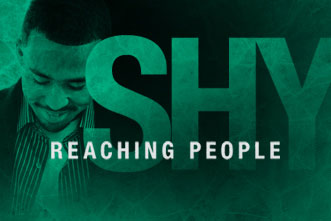Getting your lesson across in ways that allow you to monitor whether learners are connecting with content can be difficult if learners fear speaking in class. Fortunately, learners come with many different preferences for how they learn, and written assignments can engage learners when verbal options fail. For whatever reason—inexperience, insecurity, lack of self-esteem, lack of spiritual growth and so forth—they fear embarrassment if they reveal their thoughts, ideas and failures in living the Christian life.
One way to engage these learners is through reflective writing activities. Writing allows the privacy they prefer while encouraging reflection on experiences, thoughts and actions in life. Personal evaluation is necessary for Christian growth.
Reflective learning is one of several approaches to how learners prefer to engage new material. Teaching Adults: A Guide for Transformational Teaching provides detailed information on teaching the reflective learner as well as the other seven approaches to learning demonstrated by adults.
Written assignments require more preparation and structure than most of us think. Simply asking learners to write their thoughts on a given subject can lead to little or no real learning because objective content does not require one to make personal judgments and evaluation. Plan carefully for what you want learners to do before the first pen stroke.
Know what you want learners to achieve. Structure your questions or assignments to lead to identifiable results, generally requiring learners to reflect on some personal experience or feeling.
Write questions carefully, structuring them to lead toward your teaching goal. You may need to write the questions several times before you are clear and concise.
Limit the questions. Ask only two or three questions that connect well. Too many questions can burden the reflection process, and only one question can leave learners confused about content specifics.
Adjust your teaching plan. Writing assignments, especially those requiring learners to spend time thinking and reflecting, will require adjustments in the time you allot to other parts of your teaching plan.
Make copies of the questions for each person. Rather than writing the assignment on the board or a large sheet of paper, prepare printed worksheets for learners.
Assure personal safety. Some learners might be inhibited in writing what they really feel or think, fearing that you might call on them to share their responses aloud. Inform learners that no one has to share anything unless they choose to do so.
Ask for volunteers. You might have to ask someone in advance to be prepared to share his or her response, but always ask for volunteers to avoid embarrassment.
Some adults, particularly new or insecure Christians, think that their struggles, failures, and fears are unique. They fear asking questions or making comments because they don’t want to look inadequate. Written assignments in a secure environment can encourage adults to be honest with themselves while assuring a level of safety. The ensuing discussion can help them discover that others have had similar experiences.
Reflective learning and activities can lead adults to spiritual growth as they express themselves and wrestle with their concerns. Such experiences provide a natural environment for group learning and for developing networks of support and encouragement, and possible open doors for special discipleship studies at other times.













